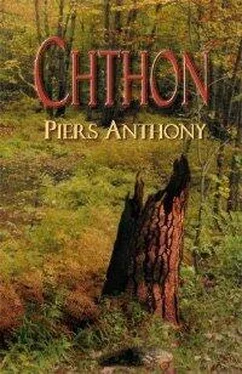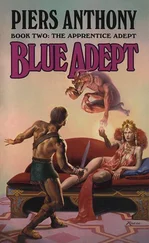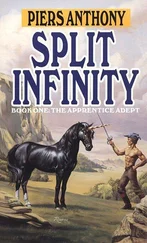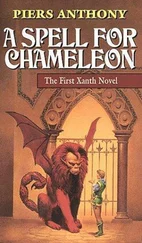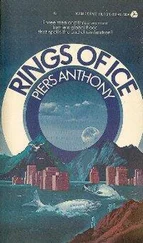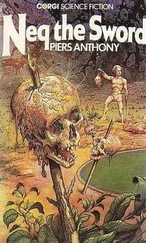Piers Anthony - Chthon
Здесь есть возможность читать онлайн «Piers Anthony - Chthon» весь текст электронной книги совершенно бесплатно (целиком полную версию без сокращений). В некоторых случаях можно слушать аудио, скачать через торрент в формате fb2 и присутствует краткое содержание. Город: 1967, Издательство: Ballantine, Жанр: Фантастика и фэнтези, на английском языке. Описание произведения, (предисловие) а так же отзывы посетителей доступны на портале библиотеки ЛибКат.
- Название:Chthon
- Автор:
- Издательство:Ballantine
- Жанр:
- Год:неизвестен
- Город:1967
- ISBN:нет данных
- Рейтинг книги:5 / 5. Голосов: 1
-
Избранное:Добавить в избранное
- Отзывы:
-
Ваша оценка:
- 100
- 1
- 2
- 3
- 4
- 5
Chthon: краткое содержание, описание и аннотация
Предлагаем к чтению аннотацию, описание, краткое содержание или предисловие (зависит от того, что написал сам автор книги «Chthon»). Если вы не нашли необходимую информацию о книге — напишите в комментариях, мы постараемся отыскать её.
Nominated for the Hugo Award for Best Novel in 1968.
Chthon — читать онлайн бесплатно полную книгу (весь текст) целиком
Ниже представлен текст книги, разбитый по страницам. Система сохранения места последней прочитанной страницы, позволяет с удобством читать онлайн бесплатно книгу «Chthon», без необходимости каждый раз заново искать на чём Вы остановились. Поставьте закладку, и сможете в любой момент перейти на страницу, на которой закончили чтение.
Интервал:
Закладка:
“Yes,” Aton said. “I’m looking for a planet.”
“In a library?”
Aton smiled dutifully. “Its name is Minion.” Would the man react?
Caretaker 14 lifted his smooth beard thoughtfully. “Mignon. That would be one of the flower planets.”
“I don’t think so,” Aton said, but he looked upon the man with a certain dawning respect. There was a planet of Mignon; he had seen it in the ephemerides when he searched for the other. All the planets of that system had been named for flowers.
“Ah—I knew the term was familiar. Did you know that our standard typeface is Minion? Seven point print, about ten lines to the inch—”
Aton shook his head in negation. “This is a planet. An inhabited one. But I don’t know the name of its primary.”
“We’ll find it. The index, the Cyclopaedia, the ephemerides—oh, never fear, we’ll find it!” Number 14 spoke with subdued excitement and confidence, as though he had forgotten the origin of the request. It had become his own problem, and he would not be satisfied until he ran it down. Aton smiled at the man’s simplicity. “Proscribed, of course?” Aton frowned at the man’s insight.
“It may be. Frankly, I had heard about it, but didn’t seem to find it in the regular lists—”
“Yes. And you could not afford to use the computer, because it records all dubious requests. We get a number of similar cases. But don’t be concerned. Stack personnel are harmless and confidential. Generally.”
Was the man requesting a bribe for silence? Or trying to pry additional information to sate his curiosity? What were his terms? They followed him down interminable passages, ill at ease.
They arrived at somewhat wider halls. Lining one wall was a series of booths, each with a central table and bench. Number 14 settled them in one and began rounding up references.
Aton looked at Partner. “Can we trust him?” his glance inquired. “We have to,” Partner’s expression replied.
Number 14 returned with an armful of books and a small box. He piled them all on the table. “You have to approach a proscribed planet—don’t be alarmed, these booths are sealed private—deviously,” he said cheerfully. The primary has to be listed, of course, since you can hardly hide a star by ignoring it, but there may not be much evidence to link it to the planet you want. Now here we have the index of all the stars in the Earth Sector. If the sun we want is in it—and we’ll have to assume that it is, because there are a hundred thousand sectors in the galaxy, most of them impossibly alien—we can be certain that it is listed here. This reference does not indicate whether there are habitable planets, but they are not hard to spot: the early explorers named the habitables and let numbers do for the others. Unless they had a special interest in the system, in which case they named them all. But the point is that all inhabited planets are named, even though not all named planets are habitable. Are you with me so far?”
Aton and Partner nodded. Had this man ever appeared ignorant or naïve?
“Comes from a lifetime of spot researching,” 14 said in answer to the unspoken comment. “A good library assistant can locate things even the computer balks at.” He smiled, to show that this was a slight exaggeration, and fiddled with the box. It glowed, and the end wall lighted. “I’m going to project a sector map,” he said. “You are familiar with the type, of course—white for the front stars, red shift for the distant ones? And you’ve heard the joke about the color-blind navigator? Too bad. And you understand that only the established navigational beacons can be shown in such a comprehensive illustration. We’ll get on to the detail maps in a moment.” He touched a plate, and intricate networks appeared, linking the stars in curious patterns. Aton was reminded painfully of the Xest painting. Perhaps that was the origin of Xest art.
“This is an overlay showing the routes of exploration,” 14 said. “It does not occur to most people that all inhabited planets have to be discovered by someone, in order to get that way. We have records of all the early explorations. Now we can get a fair idea of the placement of your planet if you will answer a few questions. Is it settled?”
“Yes,” Aton said, fascinated by the dispatch with which the search was moving at last. “For several centuries, I think.”
“Good. That eliminates the recent colonies, which far outnumber the established ones.” The overlay changed and the majority of the threaded patterns disappeared. “This sets the limit at §100—much less complicated, as you see. By using this outline, we can reduce our list of prospects to several thousand. Do you have any navigational data at all?”
“No. It could be anywhere.”
“It can only be where it is . Are the natives modified?”
“They must be. At least, the women have a reputation—”
“Ah. This reduces the number again. Do you happen to know why it is proscribed?”
“Only the legend. The women are reported to be sirens that live forever. It is said to be—to be death to love one.”
“Ah,” 14 said, uncomfortably alert. “You love one of these sirens. I hope for your sake that the legend is not true. Even a normal woman is bad enough. But we shall assume that genetic engineering has granted the inhabitants longevity. Which certainly could be grounds for proscription. Earth is overpopulated, even now, and she long since decreed that colonization should be by export from the home planet; she deplores natural increase in population through longevity.”
“Earth can’t dictate—” Partner began. He had been quietly studying the projection.
Number 14 shrugged. “Have it your way. But the planet is out of circulation nevertheless. And this narrows the range further, because longevity is post-§ by about fifty years. It took a score more before it became commercially feasible—bad side effects, you know—and ten years after that the law cracked down. Or whatever unofficial euphemism did, since as you point out. Earth cannot dictate.”
“Ten years,” Partner said. “§70 to §80.”
The overlay changed again, and now the map enlarged and the routes were replaced by bright colony indicators. “Modified colonies for that period are few. A mere hundred or so, as you can see. We could look each of them up in the index now, if we could be certain that it listed all the planets. But planets, unfortunately, are not the navigational hazards that stars are. I think our time would be wasted.”
“There is no colony record?”
“Not for proscribed efforts. They simply aren’t mentioned, at least not by name, and not in the up-to-date volumes. We simply haven’t the space to preserve annual publications; the old books that predate proscription would list your planet, but they were thrown out centuries ago. We could run it down by elimination—but if there is more than one proscribed planet hidden in the list, we could not be certain which one is yours.”
Partner was busy with the index. “Get me the sector Cyclopaedia volume covering ‘Point’,” he said.
“ ‘Point?’ As you say,” 14 agreed. “But the Cyclop’ doesn’t list stars.”
In a moment they were poring over the text. “ ‘Point, Jonathan R., stellar scout, §41–154,’ ” Partner read. “That should be our man.”
“The discoverer of Point, one of the stars on our list,” 14 said. “Probably his first ‘habitable,’ since he named it after himself. But what makes you think—”
“I followed your advice,” Partner said. “I approached the problem deviously. Your conventional approach can only take you a certain distance, since, as you point out, they could simply number a proscribed planet, as though it were uninhabited, or skip it entirely, leaving you without proof of its identity. But the clue lies in a homonym.” He found his place and read aloud again: “ ‘Point: an ancient unit of type measurement… seventy-two points to the inch…’ ”
Читать дальшеИнтервал:
Закладка:
Похожие книги на «Chthon»
Представляем Вашему вниманию похожие книги на «Chthon» списком для выбора. Мы отобрали схожую по названию и смыслу литературу в надежде предоставить читателям больше вариантов отыскать новые, интересные, ещё непрочитанные произведения.
Обсуждение, отзывы о книге «Chthon» и просто собственные мнения читателей. Оставьте ваши комментарии, напишите, что Вы думаете о произведении, его смысле или главных героях. Укажите что конкретно понравилось, а что нет, и почему Вы так считаете.
